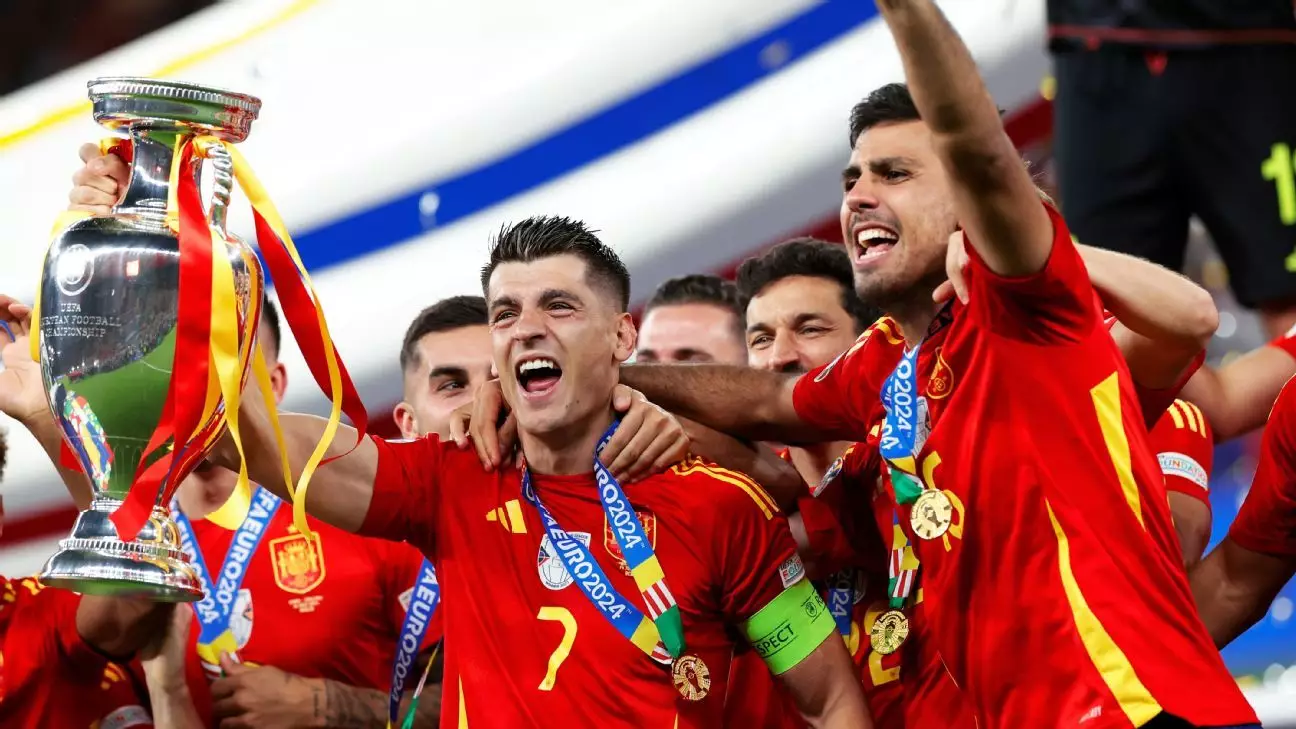The recent uncertainty surrounding Spain’s hosting rights for the 2030 World Cup has stirred significant concern among fans and players alike. With FIFA slated to make a crucial decision regarding the tournament’s hosts during its upcoming Congress meeting on December 11, the delays in electing a new president for the Spanish Football Federation (RFEF) have placed Spain’s candidacy in jeopardy. Luis de la Fuente, Spain’s national team coach, expressed his clear dismay over these developments, emphasizing the grave implications for both the sport and the nation.
De la Fuente described the situation as dire, questioning how one could remain indifferent in light of the possible loss of hosting responsibilities. His sentiments resonate deeply within the football community, where hosting such a prestigious event carries immense national pride and substantial economic impact. The loss of this opportunity would not only stunt Spain’s football aspirations but also hinder economic prospects tied to tourism and infrastructure development expected from the World Cup.
A significant contributing factor to the unrest within Spanish football is the lack of leadership within the RFEF. Since July, the federation has been without a president due to the suspension of Pedro Rocha for two years following serious infractions. This power vacuum has left Spain exposed to the risk of governmental interference, a situation FIFA is firmly against. This dilemma calls into question the governance of football in Spain and the ability of the federation to maintain its autonomy while addressing pressing matters such as electing a stable administrative body.
De la Fuente emphasized the urgent need for the RFEF to restore normalcy in its operations. He believes that an effective leadership transition is integral to showcasing Spain’s capability to host the World Cup. Additionally, he highlighted the Bernabéu Stadium in Madrid as a proposed venue for the final, which underscores the necessity of having a functioning federation to manage such monumental events.
Amid these structural challenges, the national team is also grappling with significant player injuries, particularly the unfortunate ACL tear suffered by key midfielder Rodri. His absence is a considerable blow to the team as they prepare for upcoming Nations League matches against Denmark and Serbia. De la Fuente conveyed his hopes for a swift recovery for Rodri, who is regarded as a vital component of the team’s midfield strategy. The coach’s belief in Rodri’s resilience reflects a broader theme of determination that is prevalent within the squad, emphasizing the need to address both on-field and off-field challenges.
As Spain grapples with potential loss of its World Cup hosting bid and the uncertainty surrounding its football federation leadership, the coming weeks are critical. The convergence of leadership issues, player injuries, and the looming judgment from FIFA places the Spanish football community in a precarious position, demanding unified action and responsive governance to safeguard its illustrious football legacy. The nation’s hopes for a successful World Cup run hinge not only on player performance but also on the resolution of these administrative challenges that threaten to overshadow Spain’s rich football heritage.

Leave a Reply